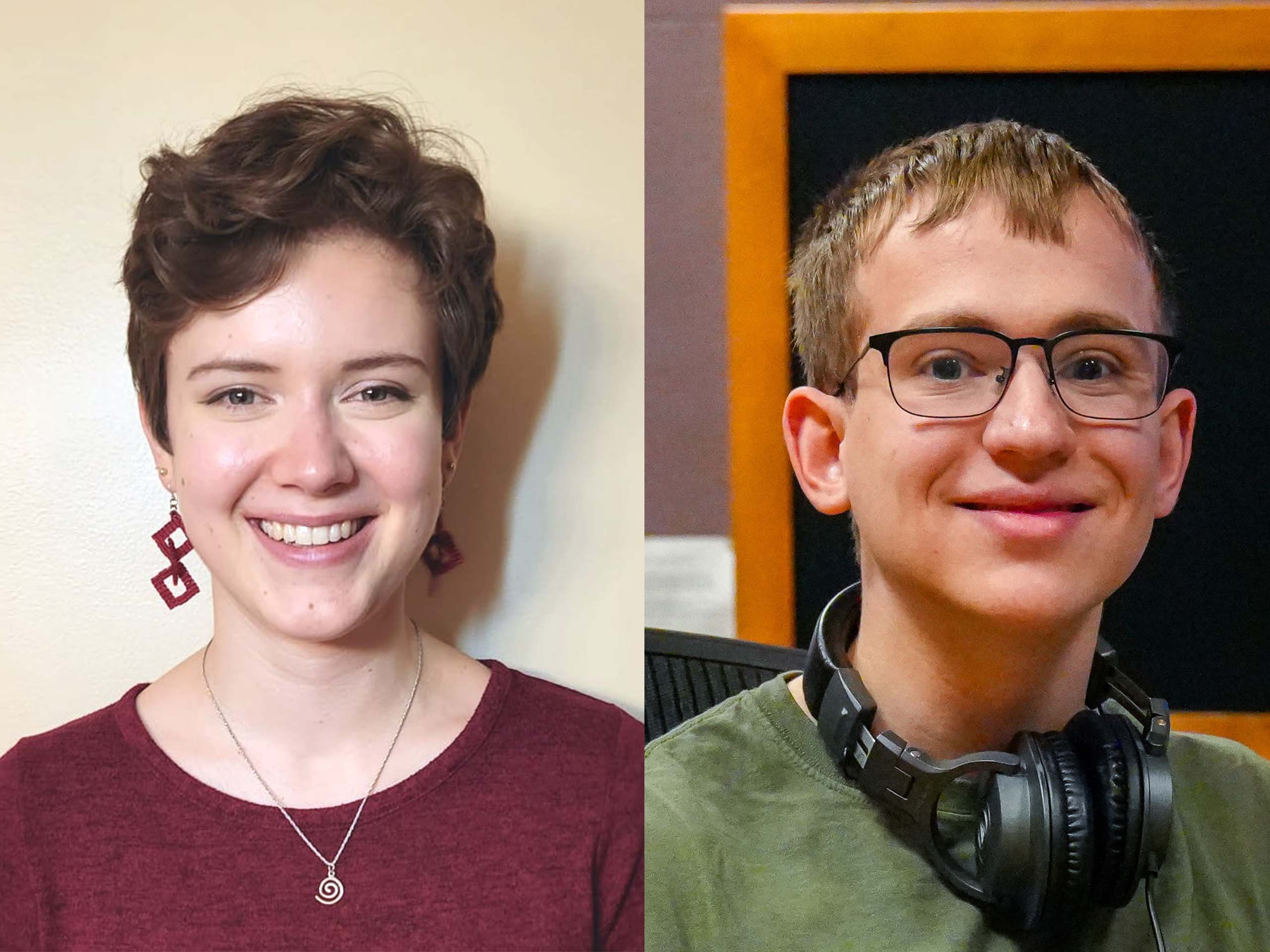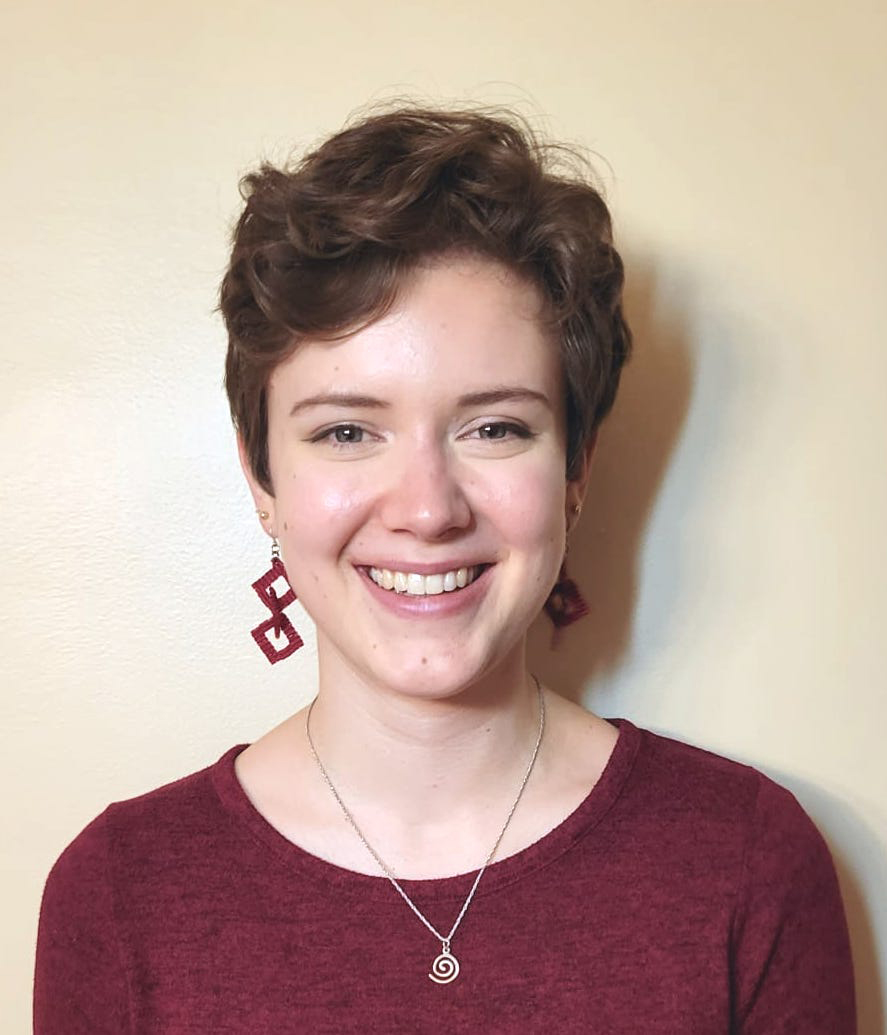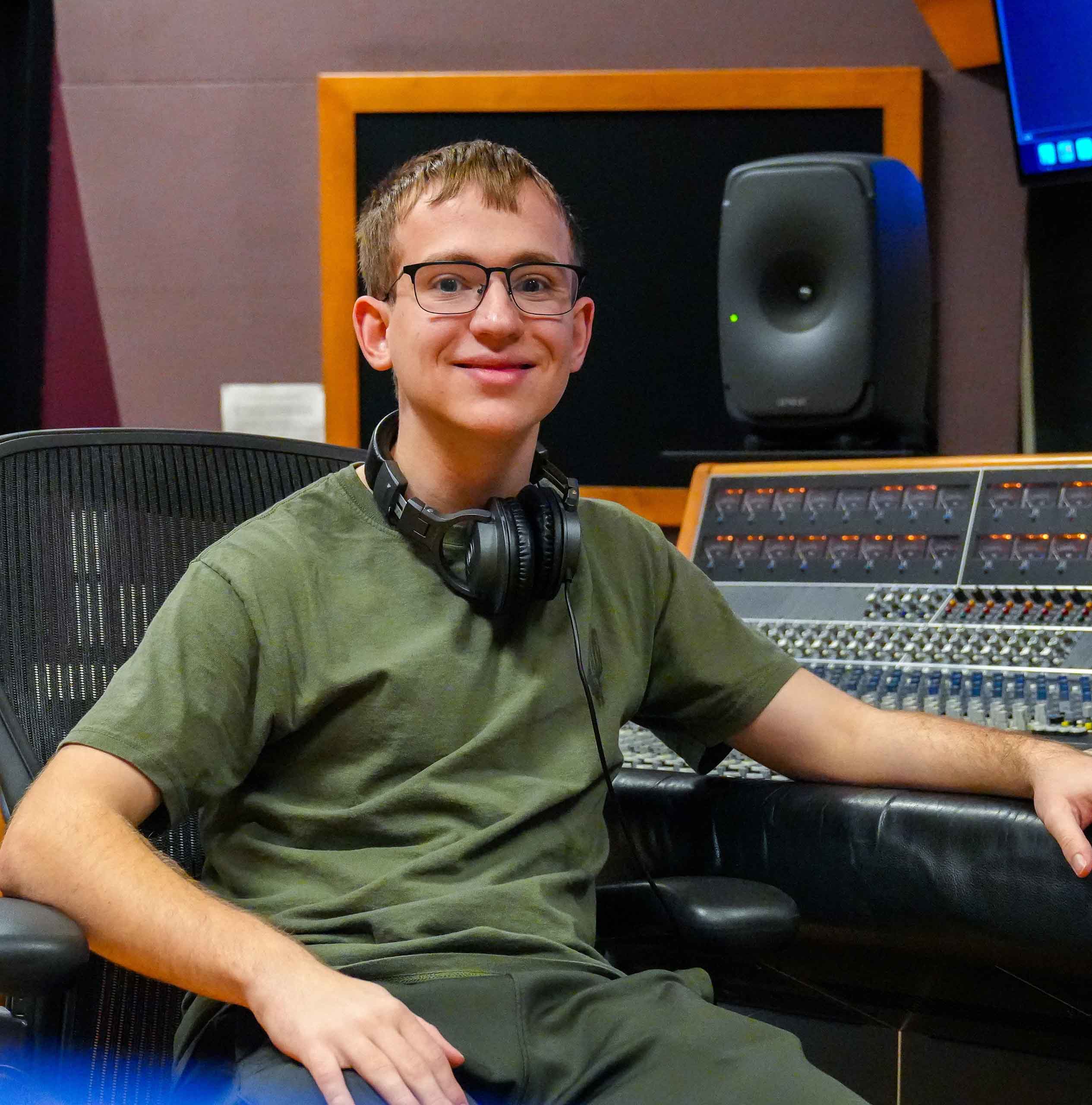In addition to a monetary prize, the winners also earn the honor of having their work premiered by one of SMTD’s major ensembles in the following academic year. Elsinger’s work will be performed by the Concert Band, conducted by Courtney Snyder, associate professor of music and associate director of bands, and Farley’s work will be performed by the Chamber Choir, conducted by Eugene Rogers, associate professor of music and director of University Choirs. “I am thrilled [for the Chamber Choir] to perform Nora Farley’s prize-winning choral composition,” Rogers shared. “She has been a part of the choral ensembles for the past two years, and it’s nice to feature her as a composer. Her composition is full of vocal color, and I look forward to bringing it to the concert stage in fall 2025.”
Open to SMTD students, the Brehm Prizes were endowed in 2011 (for choral compositions) and in 2015 (for instrumental) by William (BS ’50, MS ’52) and Delores Brehm, with the goal of encouraging the composition of new works. The choral competition is overseen by Rogers, and the instrumental competition is overseen by Erik Santos, associate professor of music and chair of the Department of Composition. “The annual Brehm composition competitions are a tremendous opportunity for our creative community,” Santos noted. “Not only do these prizes provide a chance to collaborate with wonderful musicians on a performance and recording, they also serve to awaken composerly aspirations and awareness of individual artistic voice.”
The Composers and Their Works
Both students are multifaceted composers, writing in a variety of styles for an array of ensembles. “I find it helpful to switch back and forth between working on vocal and instrumental pieces because they present different challenges,” Farley said. “I want to continue to write choral music and build a name for myself as a choral composer, but I never want it to be the only thing I do.” Elsinger has composed concert pieces for large ensembles, jazz charts, film scores, and electronically produced tracks. “I take a lot of pride in my versatility as a composer,” he said, “and am always looking for something new to guide my work.”
Farley shared her excitement to have her work performed by the Chamber Choir and her gratitude for the support of faculty:
It’s a huge honor to have this piece performed by the Chamber Choir and very special as it means that a lot of my friends and classmates will be singing it. Professionally, it’s a huge step up for me, because many of those friends and classmates – as well as people in the audience – are potential future collaborators, and it’s a great opportunity to introduce them to my work as a composer and get my music out to more and more listeners. I’m so grateful to Dr. Roshanne Etezady, with whom I studied last year while I was writing this piece. Two professors from the summer program I attended (Composers Sandbox Summer Intensive in Geneva, New York) were also extremely helpful and supportive as I finished up this piece: Dr. Mark Olivieri and Dr. Marc Mellits, so I would like to thank both of them as well.
Elsinger also expressed excitement for the premiere of his piece and his appreciation for supporters near and far:
To have my work premiered by the Concert Band will be a dream come true. I have many friends who are currently in the ensemble, and I know that these musicians are extremely talented and dedicated to their craft. I know the premiere will be amazing, and I can’t wait to watch this piece come to life through this group! I would like to thank my composition professor Michael Daugherty, whose insights helped guide me as I wrote this piece. I would also like to thank my supportive parents, as well as all of my wonderful friends and teachers at Michigan and back at home who have been by my side as I have navigated my creative journey.



